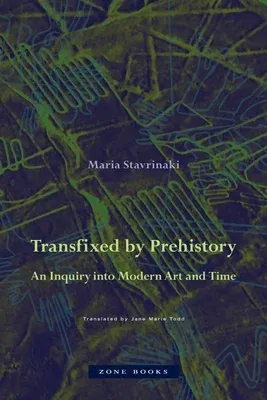An examination of how modern art was impacted by the concept of
prehistory and the prehistoric
Prehistory is an invention of the late nineteenth century. In that
moment of technological progress and acceleration of production and
circulation, three major Western narratives about time took shape. One
after another, these new fields of inquiry delved into the obscure
immensity of the past: first, to surmise the age of the Earth; second,
to find the point of emergence of human beings; and third, to ponder the
age of art. Maria Stavrinaki considers the inseparability of these
accounts of temporality from the disruptive forces of modernity. She
asks what a history of modernity and its art would look like if
considered through these three interwoven inventions of the longue
durée. Transfixed by Prehistory attempts to articulate such a
history, which turns out to be more complex than an inevitable march of
progress leading up to the Anthropocene. Rather, it is a history of
stupor, defamiliarization, regressive acceleration, and incessant
invention, since the "new" was also found in the deep sediments of the
Earth. Composed of as much speed as slowness, as much change as deep
time, as much confidence as skepticism and doubt, modernity is a complex
phenomenon that needs to be rethought. Stavrinaki focuses on this
intrinsic tension through major artistic practices (Cézanne, Matisse, De
Chirico, Ernst, Picasso, Dubuffet, Smithson, Morris, and contemporary
artists such as Pierre Huyghe and Thomas Hirschhorn), philosophical
discourses (Bataille, Blumenberg, and Jünger), and the human sciences.
This groundbreaking book will attract readers interested in the
intersections of art history, anthropology, psychoanalysis, mythology,
geology, and archaeology.

